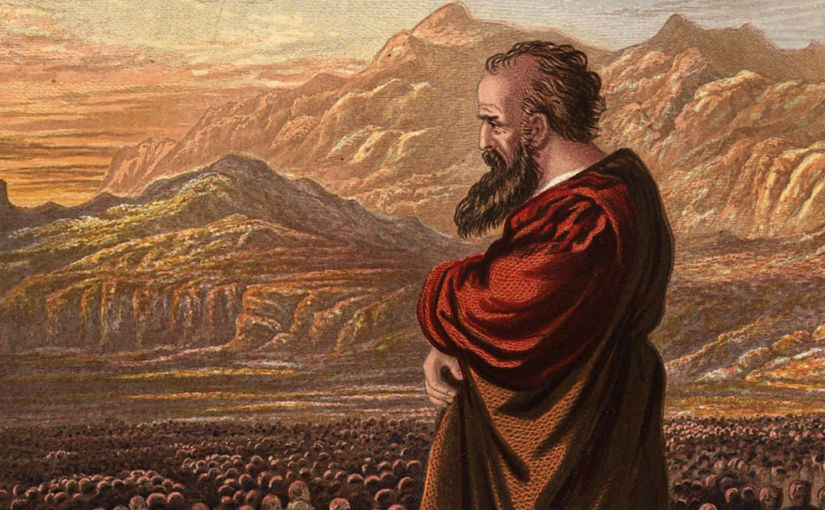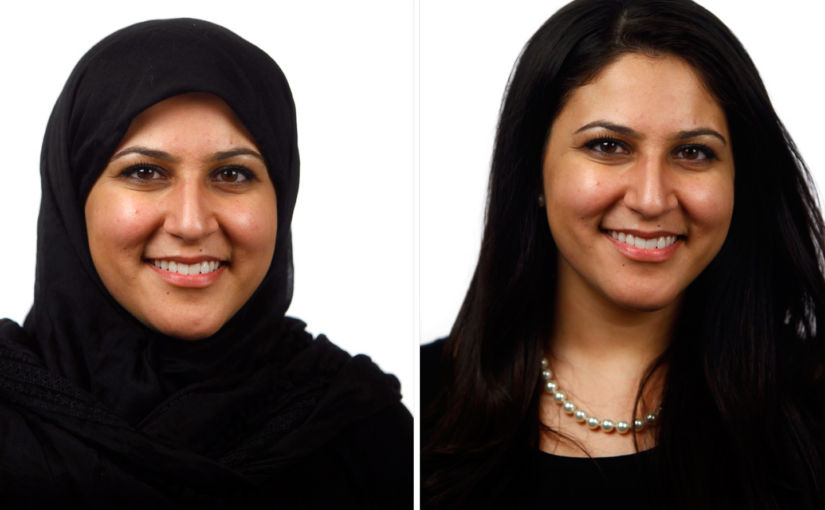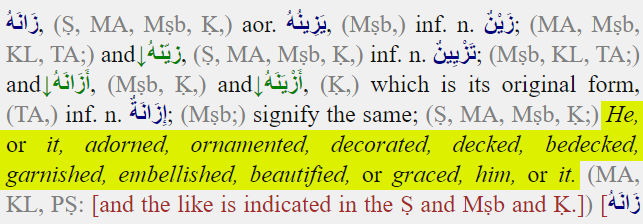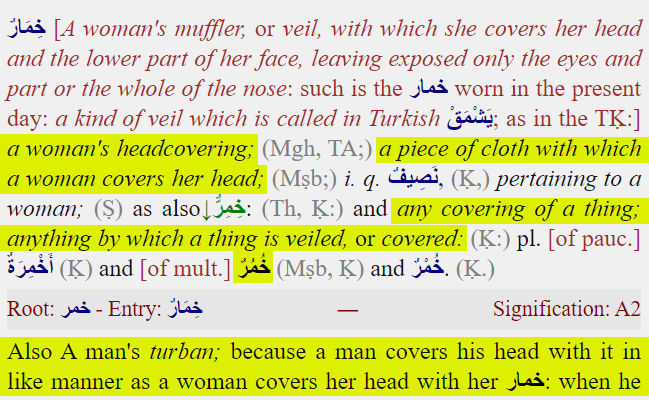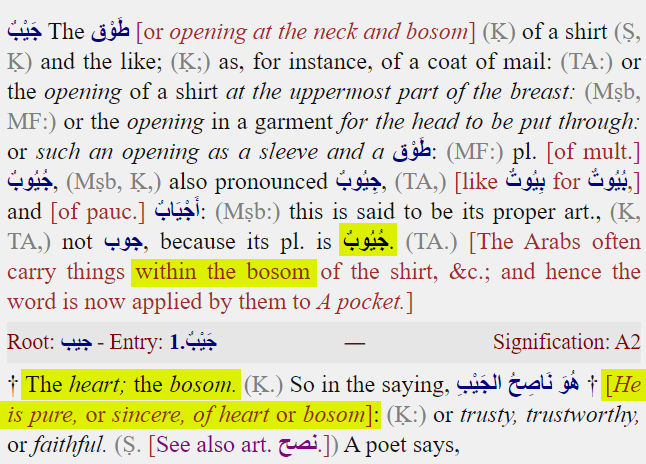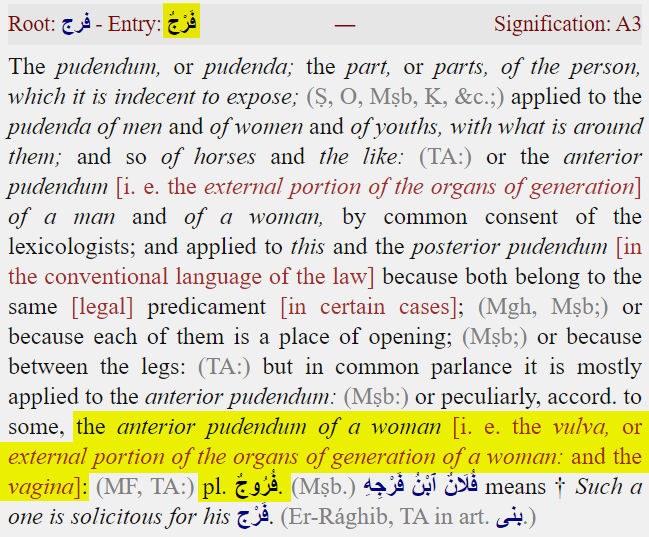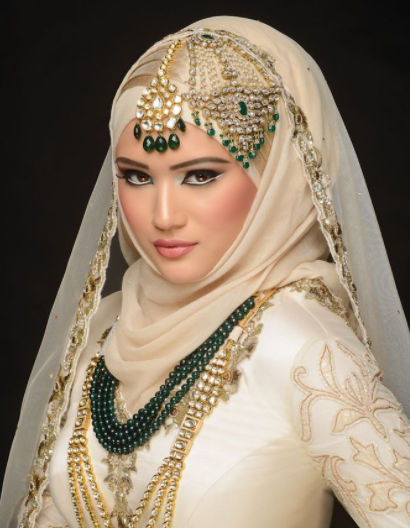This article has been translated into other languages:
- Indonesian
- Arabic (coming soon)

There is a certain group of people who believe that they are descendants of the prophet Muhammad. A popular term used to refer to these people is “Sayyid” (singular) or “Sadah” (plural). It is also commonly spelled “Syed”. The descendants of Muhammad through their mother but not father are referred to as “Mirza”. Although reliable statistics are unavailable, conservative estimates put the number of Sayyids in the tens of millions. Sayyids can be found all over the world including the following.
Iraq
The Sayyid families in Iraq are so numerous that there are books written especially to list the families and connect their trees.
Iran
Sayyids are found in vast numbers in Iran. The Chief of the “National Organization for Civil Registration” of Iran declared that more than 6 million Iranians are Sayyid.
Oman
In Oman, Sayyid is used by members of the Al Said ruling royal family. Members of the extended family or members by marriage carry the title Sayyid or Sayyida for a female. Such titles in Oman are hereditary through paternal lineage or in some exceptional circumstances, such as an honorary title given by royal decree.
Libya
The Sayyids in Libya are Sunni, including the former royal family, which is originally Zaidi-Moroccan (also known as the Senussi family).
Yemen
In Yemen the Sayyids are more generally known as sadah; they are also referred to as Hashemites. In terms of religious practice, they are Shia, Sunni, and Sufi. Sayyid families in Yemen include the Rassids, the Qasimids, the Mutawakkilites, the Hamideddins, some Al-Zaidi of Ma’rib, Sana’a, and Sa’dah, the Ba ‘Alawi sada families in Hadhramaut, Al-Wazir of Sana’a, Al-Shammam of Sa’dah, the Sufyan of Juban, and the Al-Jaylani of Juban.
Yemeni Ba ’Alawi
The term Ba ‘Alawi (باعلوي) which, in Yemeni dialect, is short for Bani ‘Alawi, means “clan or descendants of ‘Alawi”.
The Ba ‘Alawi sada families trace their lineage to Sayyid al-Imam Ahmad al-Muhajir bin Isa ar-Rumi born in 873 (260H), who emigrated from Basra to Hadhramaut in 931 (320H) to avoid sectarian violence, including the invasion of the Qaramite forces into the Abbasid Caliphate. Imam al-Muhajir’s grandson Alawi was the first Sayyid to be born in Hadhramaut, and the only one of Imam al-Muhajir’s descendants to produce a continuous line; the lineages of Imam al-Muhajir’s other grandsons, Basri and Jadid, were cut off after several generations. Accordingly, Imam Al-Muhajir’s descendants in Hadhramaut hold the name Bā ‘Alawi (“descendants of Alawi”). The Ba ‘Alawi Sadah have since been living in Hadhramaut in Southern Yemen, maintaining the Sunni Creed in the fiqh school of Shafii. In the beginning, a descendant of Imam Ahmad Muhajir who became a scholar in Islamic studies was called Imam, then Sheikh, but later called Habib (beloved).
South Asia
In 1901 the total number of Sayyids (Syeds) in British India was counted as 1,339,734. Recent estimates show that in India, Pakistan, Bangladesh, and Nepal there are more than 15 million Sayyids: 8 million in Pakistan, 7 million in India, over 1 million in Bangladesh, and around seventy thousand in Nepal.
Southeast Asia
Most of the Alawi Sayyids who moved to Southeast Asia were descendants of Ali ibn Husayn Zayn al-Abidin, especially of Ba ‘Alawi sada, many of which were descendants of migrants from Hadhramaut. Even though they are alleged descendants of Husayn, it is uncommon for the female Sayyids to be called Sayyidah; they are more commonly called Sharifah. Most of them live in Brunei, Indonesia, Malaysia, Singapore, Moro Province in the Philippines, Pattani and Cambodia. Many of the royal families of this region such as the previous royal families of the Philippines (Sultanate of Sulu, Sultanate of Maguindanao, Confederation of Sultanates of Ranao), Singapore (Sultanate of Singapore), Malaysia (Sultanates of Johor and Perlis), Indonesia (Sultanates of Siak, Pontianak, Gowa, some Javanese Sultanates), and the existing royal family of Brunei (House of Bolkiah) are also Sayyids, especially of Ba’Alawi.
Some common surnames of these Sayyids are al-Saqqaf, Shihab (or Shahab), al-Aidaroos, al-Habsyi (or al-Habshi), al-Kaff, al-Aththos, al-Haddad, al-Jufri (or al-Jifri), al-Muhdhar, al-Shaikh Abubakar, al-Qadri, al-Munawwar.
Ottoman Empire
In the Ottoman Empire, Muhammad’s descendants formed a kind of nobility with the privilege of wearing green turbans.

Are Sayyids Really Descendants of the Prophet Muhammad?
Genetic studies of Sayyids of the Indian sub-continent
The authors of the study “Y chromosomes of self-identified Syeds from the Indian subcontinent” showed that the Y chromosomes of self-identified Syeds from India and Pakistan are no less diverse than those non-Syeds from the same regions, suggesting that Syed status, rather than being strictly patrilineal, may have been passed through other routes, and that there is no biological basis to the belief that self-identified Syeds in this part of the world share a recent common ancestry.
Imposters
In the Ottoman Empire, tax breaks for Sayyids encouraged many people to buy certificates of descent or forge genealogies; the phenomenon of teseyyüd – falsely claiming noble ancestry – spread across ethnic, class, and religious boundaries. In the 17th century, an Ottoman bureaucrat estimated that there were 300,000 impostors. In 18th-century Anatolia, nearly all upper-class urban people claimed descent from Muhammad.

Mixed ancestry
Though many Sayyids claim nobility and superiority due to their lineage to the prophet Muhammad, most Sayyids can only claim patrilineal descent. Sayyids often married non-Sayyid Arabs and even non-Arabs resulting in them having very little genetic traces of the Prophet Muhammad. Unsurprisingly, most Sayyids, such as the Ba’Alawi of Southeast Asia, look mixed Asian and Arab or completely Asian. Following are some famous Ba’Alawi Sayyids according to https://en.wikipedia.org/wiki/Ba_%27Alawi_sada who look Indonesian or mixed Arab and Indonesian.

Merchant

Indonesian politician

Indonesian preacher

Former minister of maritime affairs and fisheries of Indonesia

Indonesian songwriter

Indonesian footballer

Sultan of Palembang Sultanate, National Hero of Indonesia

a famous painter in Dutch Indies

National Hero of Indonesia

12th Sultan of Siak Sri Indrapura Sultanate

Indonesian actor
Sayyid Superiority
Most Muslims consider Prophet Muhammad to be superior to all other prophets. This is evidenced by the fact that pretty much every mosque in the world has two names placed side by side on their walls, namely “Muhammad” and “Allah” (Arabic for “God”). Very rarely will you see the names of the other prophets such as Abraham, Moses and Jesus. Interestingly, Muhammad’s name is more often than not the same size and at the same height as that of God suggesting that Muhammad is equal to God, which obviously contradicts Islam’s core fundamental belief, but that’s a different issue.

By believing in the superiority of Muhammad, some descendants of the prophet Muhammad and even other Muslims would regard Sayyids as noble people who are somewhat superior to everyone else. For example, in the Ottoman empire, tax breaks were given to Sayyids. In Indonesia, many native Indonesian students of Islam would bow down and kiss the hand of a Sayyid even if the Sayyid wasn’t a practicing Muslim.
Further evidence that Sayyids consider themselves a superior group comes from their choice of a marriage partner (or their parent’s choice of a marriage partner for their children).
In India, traditional Sayyid families rarely marry outside their community and emphasize marrying into Najeeb Altarfain (of Sayyid descent from both the mother’s and father’s side) families. However, this insistence on endogamy has begun to decline among the more urbanized families, with an increase in exogamy with other groups such as the Shaikh and Mughals.
In Indonesia, I am personally familiar with the fact that many Ba’Alawi Sayyids insist on marrying other Ba’Alawi Sayyids, especially if the Sayyid is a female since ancestral lineage is patrilineal. Ironically, the prophet Muhammad himself had no sons, just a daughter, yet many Sayyids use patrilineal ancestry in their family trees linking them to the prophet.
Marriage
In order to continue their patrilineal ancestry to the prophet Muhammad and consequently their children’s sense of nobility and superiority, female Sayyids would have to marry other Sayyids. Unfortunately, however, marrying someone on the basis of family name as opposed to compatibility is likely to result in disappointment and divorce.
Sayyid women marrying Sayyid men
In one example, a female Ba’alawi Sayyid I know married a Ba’alawi Sayyid man who turned out to be violent and who even threatened to kill her. Not exactly noble behavior!
In another example, a Ba’alawi Sayyid woman married a Ba’alawi Sayyid man who was her cousin. The man then married another woman who was a non-Ba’Alwi Arab so as to have two wives. The first wife rejected the second marriage and ran away. Eventually, the second wife divorced her husband. The first wife, who never worked, was dependant on her husband so she eventually came back to him. Now, they live together but sleep in separate rooms and don’t talk to each other.
In another example, a female Ba’alawi Sayyid I know married a Ba’alawi Sayyid without them having even seen each other in person before their wedding day. There was even support and pressure for this marriage from both families as if marriage between two Sayyids was a guarantee of success and happiness. Unsurprisingly, she divorced her husband after 10 years, is now 44 years old, doesn’t have any kids despite wishing to have kids, and is finding it difficult to remarry at her age.
A non-Sayyid Arab woman marrying a Sayyid man
Some non-Sayyid women may feel proud to marry a Sayyid man so that their children can become Sayyids. Though Sayyids may consider themselves superior, they are really just ordinary people. Like everyone else, some Sayyids are good and some are bad. I personally know of a non-Sayyid woman who married two Ba’alawi Sayyids. She divorced the first husband after one week and divorced the second after having 6 children. She never remarried. Though she may feel proud that her children are Sayyids, she’s probably more disappointed that her marriages failed.
A Sayyid woman marrying a non-Arab, non-Sayyid man
Sometimes, a female Sayyid would marry a non-Arab non-Sayyid. This happened to the sister of a Ba’alawi Sayyid friend of mine. She wanted to marry a native Indonesian. As this was considered unacceptable, sadly only a few people attended the wedding from the Sayyid side. The majority of the wedding guests were from the non-Sayyid groom’s side.
Sayyid men marrying non-Arab, non-Sayyid women
There are also cases where Sayyid parents insist their sons marry Sayyids but their sons don’t want to. In one case, three Ba’alawi Sayyid brothers each married non-Sayyids who were Mongolian, Japanese and Indonesian. Though their parents were devastated and felt disgraced, their sons seem happily married.
Matrimonial websites
Some matrimonial matchmaking websites even have a category for people to search for men and women who are Sayyids or Syeds like this Indian one.
Some may mention outright that they are only interested in marrying another Sayyid. In some cases, a parent may create a profile for their son or daughter stating that they are Sayyids and are strictly seeking Sayyid matches with words like “Non-Sayyids should not contact us and waste our time.”
Unsurprisingly, after generations of inter-racial marriages, the self-identified Sayyids on this website look Indian instead of Arab.

On another Indian matrimonial website, Muslims can choose one of many, many “castes” one of which is “Muslim – Syed”.

What’s interesting (and sad) is the sheer number of groups under the Muslim category. On this website, one can search for one of the following Muslim groups. Apparently some people – possibly many – feel that these subdivisions are necessary without realizing that it only further divides Muslims rather than unites them. Furthermore, it limits one’s choices when searching for a spouse which limits one’s potential for attaining a happy marriage.
- Muslim
- Muslim – Ansari
- Muslim – Arain
- Muslim – Awan
- Muslim – Bohra
- Muslim – Dekkani
- Muslim – Dudekula
- Muslim – Hanafi
- Muslim – Jat
- Muslim – Khoja
- Muslim – Lebbai
- Muslim – Malik
- Muslim – Mapila
- Muslim – Maraicar
- Muslim – Memon
- Muslim – Mughal
- Muslim – Pathan
- Muslim – Qureshi
- Muslim – Rajput
- Muslim – Rowther
- Muslim – Shafi
- Muslim – Sheikh
- Muslim – Siddiqui
- Muslim – Syed
- Muslim – UnSpecified
As an American Muslim, I personally am not familiar with any of these Muslim groups and only last week learned about the “Syed” group. In other words, for an outsider, none of the groups matter except for the parent group, i.e. “Muslim”.
What About Descendants of Other Prophets?
All prophets and messengers of Islam are equal
All Muslims believe that there are many prophets in Islam besides Muhammad. Some prophets are more famous than others, e.g. Adam, Noah, Abraham, Moses, and Jesus. Unfortunately, Muslims, both Sayyid and non-Sayyid, incorrectly believe that Muhammad is superior to all other prophets. Rather, no distinction should be made between any of the prophets and messengers of God. This is proven in the following verses.
| إِنَّا أَنزَلْنَا التَّوْرَاةَ فِيهَا هُدًى وَنُورٌ ۚ يَحْكُمُ بِهَا النَّبِيُّونَ الَّذِينَ أَسْلَمُوا لِلَّذِينَ هَادُوا وَالرَّبَّانِيُّونَ وَالْأَحْبَارُ بِمَا اسْتُحْفِظُوا مِن كِتَابِ اللَّهِ وَكَانُوا عَلَيْهِ شُهَدَاءَ ۚ فَلَا تَخْشَوُا النَّاسَ وَاخْشَوْنِ وَلَا تَشْتَرُوا بِآيَاتِي ثَمَنًا قَلِيلًا ۚ وَمَن لَّمْ يَحْكُم بِمَا أَنزَلَ اللَّهُ فَأُولَٰئِكَ هُمُ الْكَافِرُونَ |
| Say: We believe in God and that which had been revealed to us, and that which was revealed to Abraham and Ishmael and Isaac and Jacob and the tribes, and that which was given to Moses and Jesus, and that which was given to the prophets from their Lord, we do not make any distinction between any of them (prophets), and we are Muslims [in submission] to Him. (Quran: 2:136) |
| ءَامَنَ ٱلرَّسُولُ بِمَآ أُنزِلَ إِلَيْهِ مِن رَّبِّهِۦ وَٱلْمُؤْمِنُونَ ۚ كُلٌّ ءَامَنَ بِٱللَّهِ وَمَلَـٰٓئِكَتِهِۦ وَكُتُبِهِۦ وَرُسُلِهِۦ لَا نُفَرِّقُ بَيْنَ أَحَدٍۢ مِّن رُّسُلِهِۦ ۚ وَقَالُوا۟ سَمِعْنَا وَأَطَعْنَا ۖ غُفْرَانَكَ رَبَّنَا وَإِلَيْكَ ٱلْمَصِيرُ |
| The Messenger has believed in what was revealed to him from his Lord, and [so have] the believers. All of them have believed in God and His angels and His books and His messengers, [saying], “We make no distinction between any of His messengers.” And they say, “We hear and we obey. [We seek] Your forgiveness, our Lord, and to You is the [final] destination.” (Quran: 2:285) |
| قُلْ ءَامَنَّا بِٱللَّهِ وَمَآ أُنزِلَ عَلَيْنَا وَمَآ أُنزِلَ عَلَىٰٓ إِبْرَٰهِيمَ وَإِسْمَـٰعِيلَ وَإِسْحَـٰقَ وَيَعْقُوبَ وَٱلْأَسْبَاطِ وَمَآ أُوتِىَ مُوسَىٰ وَعِيسَىٰ وَٱلنَّبِيُّونَ مِن رَّبِّهِمْ لَا نُفَرِّقُ بَيْنَ أَحَدٍۢ مِّنْهُمْ وَنَحْنُ لَهُۥ مُسْلِمُونَ |
| Say, “We have believed in God and in what was revealed to us and what was revealed to Abraham, Ishmael, Isaac, Jacob, and the Descendants [al-Asbat], and in what was given to Moses and Jesus and to the prophets from their Lord. We make no distinction between any of them (prophets), and we are Muslims [submitting] to Him.” (Quran: 3:84) |
Verse 4:152 indicates that God will reward believers who do not discriminate between any of the messengers. This implies that believers, including Sayyids, who regard the prophet Muhammad as superior to other prophets and messengers will not be rewarded.
| وَٱلَّذِينَ ءَامَنُوا۟ بِٱللَّهِ وَرُسُلِهِۦ وَلَمْ يُفَرِّقُوا۟ بَيْنَ أَحَدٍۢ مِّنْهُمْ أُو۟لَـٰٓئِكَ سَوْفَ يُؤْتِيهِمْ أُجُورَهُمْ ۗ وَكَانَ ٱللَّهُ غَفُورًۭا رَّحِيمًۭا |
| But they who believe in God and His messengers and do not discriminate between any of them (messengers) – to those He is going to give their rewards. And ever is God Forgiving and Merciful. (Quran: 4:152) |
Now that it has been proven that
- all prophets and messengers are equal
- Muslims are not allowed to view prophets and messengers as unequal
- Muhammad is not superior to the other prophets and messengers
let’s see what the Quran says about some of the descendants of other prophets.
Some of Abraham’s descendants were wrongdoers
In verse 2:124, we see proof that not all of Abraham’s descendants are righteous. God acknowledges that some are wrongdoers despite being descendants of the prophet Abraham.
| وَإِذِ ابْتَلَىٰ إِبْرَاهِيمَ رَبُّهُ بِكَلِمَاتٍ فَأَتَمَّهُنَّ ۖ قَالَ إِنِّي جَاعِلُكَ لِلنَّاسِ إِمَامًا ۖ قَالَ وَمِن ذُرِّيَّتِي ۖ قَالَ لَا يَنَالُ عَهْدِي الظَّالِمِينَ |
| And [mention, O Muhammad], when Abraham was tried by his Lord with commands and he fulfilled them. [God] said, “Indeed, I will make you a leader for the people.” [Abraham] said, “And of my descendants?” [God] said, “My covenant does not include the wrongdoers.” (Quran: 2:124) |
In verses 37:112-113, we see that Abraham was given a son named Isaac but some of their descendants were unrighteous sinners.
| وَبَشَّرْنَـٰهُ بِإِسْحَـٰقَ نَبِيًّۭا مِّنَ ٱلصَّـٰلِحِينَ وَبَـٰرَكْنَا عَلَيْهِ وَعَلَىٰٓ إِسْحَـٰقَ ۚ وَمِن ذُرِّيَّتِهِمَا مُحْسِنٌۭ وَظَالِمٌۭ لِّنَفْسِهِۦ مُبِينٌۭ |
| And We gave him [Abraham] good tidings of Isaac, a prophet from among the righteous. And We blessed him and Isaac. But among their descendants is the doer of good and the clearly unjust to himself [i.e., sinner]. (Quran: 37:112-113) |
In verses 11:1-18, we see proof that all but one of Prophet Jacob’s sons were unrighteous. They tried to kill their brother, Joseph, by throwing him down a well. Joseph would later become a prophet.
In verse 11:46 we see proof that prophet Noah’s immediate descendant (one of his sons) was unrighteous.
| قَالَ يَـٰنُوحُ إِنَّهُۥ لَيْسَ مِنْ أَهْلِكَ ۖ إِنَّهُۥ عَمَلٌ غَيْرُ صَـٰلِحٍۢ ۖ فَلَا تَسْـَٔلْنِ مَا لَيْسَ لَكَ بِهِۦ عِلْمٌ ۖ إِنِّىٓ أَعِظُكَ أَن تَكُونَ مِنَ ٱلْجَـٰهِلِينَ |
| He [God] said, “O Noah, indeed he (your son) is not of your family; indeed, he is [one whose] work was other than righteous, so ask Me not for that about which you have no knowledge. Indeed, I advise you, lest you be among the ignorant.” (Quran: 11:46) |
Notice that in the above verse, God tells Noah that not only is one of his sons unrighteous, but that
- Noah should not consider his unrighteous son to be of his family.
- Noah should not ask God to help his son
In verse 57:26 we see clear proof that many (not some, but “many”) of the descendants of prophets Noah and Abraham were wrongdoers (“defiantly disobedient”). The word for “many” used in the verse is “katheer” / كَثِيرٌۭ in Arabic which clearly means “many”.
| وَلَقَدْ أَرْسَلْنَا نُوحًۭا وَإِبْرَٰهِيمَ وَجَعَلْنَا فِى ذُرِّيَّتِهِمَا ٱلنُّبُوَّةَ وَٱلْكِتَـٰبَ ۖ فَمِنْهُم مُّهْتَدٍۢ ۖ وَكَثِيرٌۭ مِّنْهُمْ فَـٰسِقُونَ |
| And We have already sent Noah and Abraham and placed in their descendants prophethood and scripture; and among them is he who is guided, but many of them were defiantly disobedient. (Quran: 57:26) |
It’s possible that this verse is referring to people who lived amongst the descendants of Noah and Abraham but, considering the wording in the verses above, it most likely means that the wrongdoers were their descendants.
What About Descendants of Prophets Moses and Jesus?
According to the Quran, Moses and Jesus are prophets of Islam. They are two of the most often mentioned prophets in the Quran. The Quran calls their followers People of the Book (Arabic: Ahl Al-Kitaab) because they are followers of the holy book, the Jewish Torah. Jews and Christians revere Moses and Jesus just as much as followers of the Quran revere Muhammad. However, Jews and Christians have different attitudes towards the descendants of these prophets.
Jesus’ descendants
In the case of Jesus, there is no issue because he had no descendants.
Moses’ descendants
In the case of Moses, he had two sons, Gershom and Eliezer. However, when it came time to choose a successor for Moses, Jewish Sages said that Moses requested that one of his sons be appointed. But, God responded with, “Your sons sat and did not occupy themselves with Torah. Joshua, who served you, is fitting to serve Israel.” So, Joshua became the leader of the Israelite tribes after the death of Moses and not any of Moses’ sons (Deuteronomy 31:1–8; 34:9).
Moses had an older brother, Aaron, who had four sons. Though Moses’ sons did not live up to Moses’ example, Aaron’s sons did carry the noble traditions of their father. God considered Moses’ nephews (Aaron’s sons) as Moses’ children, for Moses was the one who taught them the Torah. This is reflected in Numbers 3:1 which begins “These are the descendants of Moses and Aaron…” but only lists Aaron’s four sons. God reassured Moses that even Joshua would need to confer with Aaron’s son, the High Priest, to know God’s will.
Though Moses had two sons, they were nothing special and Jews don’t consider descendants of Moses to be any more special than anyone else. Maybe some Muslims can learn from this Jewish attitude.
What About the Wives of Prophets?
Many Muslims believe that the wives of the prophet Muhammad were superior and righteous women. Since it was proven above that all prophets and messengers are equal, then one would expect the wives of other prophets and messengers to all be superior and righteous as well. Let’s see what the Quran says about that.
In verse 66:10 we see proof that even though prophets Noah and Lot were righteous servants of God, their wives were sinners and were sent to Hell. This verse also proves that righteous prophets had no power to save their sinful wives from Hell.
| ضَرَبَ ٱللَّهُ مَثَلًۭا لِّلَّذِينَ كَفَرُوا۟ ٱمْرَأَتَ نُوحٍۢ وَٱمْرَأَتَ لُوطٍۢ ۖ كَانَتَا تَحْتَ عَبْدَيْنِ مِنْ عِبَادِنَا صَـٰلِحَيْنِ فَخَانَتَاهُمَا فَلَمْ يُغْنِيَا عَنْهُمَا مِنَ ٱللَّهِ شَيْـًۭٔا وَقِيلَ ٱدْخُلَا ٱلنَّارَ مَعَ ٱلدَّٰخِلِينَ |
| God presents an example of those who disbelieved: the wife of Noah and the wife of Lot. They were under two of Our righteous servants but betrayed them, so they [i.e., those prophets] did not avail them from God at all, and it was said, “Enter the Fire with those who enter.” (Quran: 66:10) |
In verse 33:30 we read that if any of prophet Muhammad’s wives committed a sin, then their punishment would be double that of anyone else.
| يَـٰنِسَآءَ ٱلنَّبِىِّ مَن يَأْتِ مِنكُنَّ بِفَـٰحِشَةٍۢ مُّبَيِّنَةٍۢ يُضَـٰعَفْ لَهَا ٱلْعَذَابُ ضِعْفَيْنِ ۚ وَكَانَ ذَٰلِكَ عَلَى ٱللَّهِ يَسِيرًۭا |
| O wives of the Prophet, whoever of you should commit a clear immorality – for her the punishment would be doubled two fold, and ever is that, for God, easy. (Quran: 33:30) |
According to the verse above, it becomes clear that being related to the prophet Muhammad does not guarantee exemption from righteousness nor admission to Paradise.
What about Prophet Muhammad himself?
Many Muslims believe that prophet Muhammad was a perfect human. For that reason, they desire to imitate him in every way possible, e.g. having a long beard, following his supposedly original and authentic hadith, celebrating his birthday, etc. Interestingly, God Himself says in the Quran in two separate verses that Muhammad sinned more than once.
| إِنَّا فَتَحْنَا لَكَ فَتْحًا مُّبِينًا لِّيَغْفِرَ لَكَ ٱللَّهُ مَا تَقَدَّمَ مِن ذَنۢبِكَ وَمَا تَأَخَّرَ وَيُتِمَّ نِعْمَتَهُۥ عَلَيْكَ وَيَهْدِيَكَ صِرَٰطًا مُّسْتَقِيمًا |
| Indeed, We have given you, [O Muḥammad], a clear conquest. That Allāh may forgive for you what preceded of your sin and what will follow and complete His favor upon you and guide you to a straight path (Quran: 48:1-2) |
| فَٱعْلَمْ أَنَّهُۥ لَآ إِلَـٰهَ إِلَّا ٱللَّهُ وَٱسْتَغْفِرْ لِذَنۢبِكَ وَلِلْمُؤْمِنِينَ وَٱلْمُؤْمِنَـٰتِ ۗ وَٱللَّهُ يَعْلَمُ مُتَقَلَّبَكُمْ وَمَثْوَىٰكُمْ |
| So know, [O Muḥammad], that there is no deity except Allāh and ask forgiveness for your sin and for the believing men and believing women. And Allāh knows of your movement and your resting place. (Quran: 47:19) |
Note that the word ذَنْبٌ actually does mean sin.

Intercession by Prophet Muhammad
Some Sayyids believe that their bloodline to Prophet Muhammad would help them gain access to Paradise by way of Prophet Muhammad interceding on their behalf on the Day of Judgment / Recompense. This belief is extremely dangerous as it offers a false sense of security. According to verse 2:123, no one, including the prophet Muhammad, has the power to intercede on anyone’s behalf on the Day.
| وَٱتَّقُوا۟ يَوْمًۭا لَّا تَجْزِى نَفْسٌ عَن نَّفْسٍۢ شَيْـًۭٔا وَلَا يُقْبَلُ مِنْهَا عَدْلٌۭ وَلَا تَنفَعُهَا شَفَـٰعَةٌۭ وَلَا هُمْ يُنصَرُونَ |
| And fear a Day (Day of Judgment / Recompense) when no soul will suffice for another soul at all, and no compensation will be accepted from it, nor will any intercession benefit it, nor will they be aided. (Quran: 2:123) |
The verse above proves that on matters of religion, everyone is responsible for themselves, and no ancestor, no matter how famous or noble they were, whether they died yesterday or 1400 years ago, can benefit anyone, let alone their descendants.
Comparing Sayyids to Other Groups
Obviously, Sayyids aren’t the only people who think they are superior to others. Following are some examples of other groups of people who have a superiority complex.
Hindus
The Hindu caste system divides Hindus into four main categories – Brahmins, Kshatriyas, Vaishyas and the Shudras. Many believe that the groups originated from Brahma, the Hindu God of creation. Outside of this Hindu caste system were the achhoots – the Dalits or the untouchables. In this system, the higher your caste, the more superior you are.

Note that, as for Sayyids, this Hindu belief system is based on birth – no one can move from one group to another, whether up or down. From the viewpoint of a Hindu of upper caste, a Sayyid Muslim could be regarded as inferior to them. One consequence of this egregiously unfair Hindu caste system is the conversion of many Dalits to Islam hoping to escape discrimination. Unfortunately, according to the BBC article Why are many Indian Muslims seen as untouchable?, even Muslims of upper castes will discriminate against Dalits who have become Muslim.
Dalits are considered impure by caste Hindus and many of them work in sanitation.

Although India’s constitution banned discrimination on the basis of caste, discrimination by caste is still widely prevalent.
White supremacists
White supremacists believe that white people constitute a superior race and should therefore dominate society, typically to the exclusion or detriment of other racial and ethnic groups, in particular black or Jewish people. Some white supremacists argue that their blood is “pure” or that they are “pure” descendants of white Europeans. It is not uncommon for a white supremacist member to think they are pure European only to find out after taking a genealogy test that they have mixed ancestry.

For example, many white people may look caucasian but actually have mixed native American or Mexican ancestry. This shocking reality leads some to simply reject the test results so they may continue with their feelings of superiority.

Although US law prohibits discrimination based on race, color, religion, national origin, sex, age, etc, discrimination on these points still exists.
Other examples
If you think about it, racism and people who have a superiority complex exist in all walks of life. Some examples are:
- A person who lives in the city may think they are superior to people who live in rural areas
- A rich people may think they are superior to poor people
- A fair skinned Indian or African may think they are superior to dark skinned Indians and Africans (Note: skin whitening is big business in Asia and Africa)
- An educated person may feel they are superior to uneducated people
- A person who owns a house may feel superior to people who rent a house
- A person who owns a car may feel superior to someone who has to ride public transportation
- An American, being from the richest and most powerful country in the world, may feel superior to all non-Americans.
Most Sayyids would consider the Hindu caste system, white supremacy, and the other examples above as outrageous and completely unacceptable. Ironically, many Sayyids are no different than these other groups who claim superiority.

Salawaat
In Quran, Surah al-Ahzab (33), Verse 56 we read that God and His Angels send salawaat (blessings) to Muhammad and God instructed believers to send salawaat Muhammad as well.
| إِنَّ ٱللَّٰهَ وَمَلَائِكَتَهُ يُصَلُّونَ عَلَىٰ ٱلنَّبِيِّ يَا أَيُّهَا ٱلَّذِينَ آمَنُوا۟ صَلُّوا۟ عَلَيْهِ وَسَلِّمُوا۟ تَسْلِيمًا |
| “God and His Angels send blessings on the Prophet, O you who believe! Send your blessings on him, and salute him a thorough salutation” (Quran: 33:56) |
The word salawaat is the plural form of the word salat which means prayer, blessings or salutation. Some Sayyids think that since God and His Angels send blessings on the prophet Muhammad, then Muhammad must be superior to all other prophets, and by extension, Muhammad’s descendants are superior. They can easily be proven wrong by reading a few verses before the one above. In Quran Surah al-Ahzab (33), Verses 41-43 we find that God and His Angels send blessings on ALL believers.
| يَـٰٓأَيُّهَا ٱلَّذِينَ ءَامَنُوا۟ ٱذْكُرُوا۟ ٱللَّهَ ذِكْرًۭا كَثِيرًۭا وَسَبِّحُوهُ بُكْرَةًۭ وَأَصِيلًا هُوَ ٱلَّذِى يُصَلِّى عَلَيْكُمْ وَمَلَـٰٓئِكَتُهُۥ لِيُخْرِجَكُم مِّنَ ٱلظُّلُمَـٰتِ إِلَى ٱلنُّورِ ۚ وَكَانَ بِٱلْمُؤْمِنِينَ رَحِيمًۭا |
| O you who have believed, remember God with much remembrance. And exalt Him morning and afternoon. It is He who confers blessing upon you (believers), and His angels [do so as well] that He may bring you out from darkness into the light. And ever is He, to the believers, Merciful. (Quran: 33:41-43) |
When Muslims pray, they recite salawaat near the end of the prayer. It usually reads as follows:
| ٱللَّٰهُمَّ صَلِّ عَلَىٰ مُحَمَّدٍ وَعَلَىٰ آلِ مُحَمَّدٍ كَمَا صَلَّيْتَ عَلَىٰ إِبْرَاهِيمَ وَعَلَىٰ آلِ إِبْرَاهِيمَ إِنَّكَ حَمِيدٌ مَجِيدٌ ٱللَّٰهُمَّ بَارِكْ عَلَىٰ مُحَمَّدٍ وَعَلَىٰ آلِ مُحَمَّدٍ كَمَا بَارَكْتَ عَلَىٰ إِبْرَاهِيمَ وَعَلَىٰ آلِ إِبْرَاهِيمَ إِنَّكَ حَمِيدٌ مَجِيدٌ |
| God, send prayers on Muhammad and the family of Muhammad, as you have sent prayers on Abrahim and the family of Abrahim. Truly, You are Praiseworthy and Glorious. God, bless Muhammad and the family of Muhammad, as you have blessed Abraham and the family of Abrahim. Truly, You are Praiseworthy and Glorious. |
Here, we see that salawaat is done for Muhammad in addition to the family of Muhammad. However, there is no instruction in the Quran for believers to send salawaat to the family of Muhammad. It should come as no surprise that Islam, like many religions, has changed over time due to politics, local traditions, war, etc. It is therefore likely that influential people, e.g. some Sayyids long ago, may have modified the salawaat to include the family of Muhammad for their own personal benefit.
Dividing the Muslim Community
If Sayyids believe they are superior to everyone else, then they are dividing the Muslim community which, according to verse 6:159, is not only unacceptable, but God even tells Muhammad that he has nothing to do with them.
| إِنَّ الَّذِينَ فَرَّقُوا دِينَهُمْ وَكَانُوا شِيَعًا لَّسْتَ مِنْهُمْ فِي شَيْءٍ ۚ إِنَّمَا أَمْرُهُمْ إِلَى اللَّهِ ثُمَّ يُنَبِّئُهُم بِمَا كَانُوا يَفْعَلُونَ |
| Indeed, those who have divided their religion and become sects – you, [O Muhammad], are not [associated] with them in anything. Their affair is only [left] to God; then He will inform them about what they used to do. (6:159) |
Ironically, Sayyids use their relationship to Muhammad to justify their sense of superiority which divides Muslims while God indicates that Muhammad has nothing to do with them for that very reason.

Satan (The Father of Arrogance) and Sayyids
Ironically, Muslim Sayyids who believe that they are somehow superior to everyone else are in fact behaving like Satan himself. According to the Quran, Satan (a jinn) felt superior to Adam (a human) because Satan was made from smokeless fire whereas Adam was made from clay.

Clearly, Satan’s biological difference with Adam is much more obvious than the invisible genetic difference between Sayyids and non-Sayyids. We all (Christians, Jews and Muslims) know how the story ends. Satan’s arrogance and superiority complex will commit him to Hell for eternity.

Descendants of Adam – The First Prophet of Islam
Most people have more respect for founders or pioneers of something, whether it is a religion, a country, a successful company, etc, rather than subsequent leaders. This is one reason why most Muslims have a lot of respect for the prophet Muhammad – they think that he is the first Muslim and founder of Islam. Embarrassingly for them, it can easily be proven using the Quran that Muhammad was not the first Muslim and prophet of Islam and that he happens to be the last prophet from a long chain of prophets. In verse 16:123, God specifically told Muhammad to follow the religion of Prophet Abraham.
| ثُمَّ أَوْحَيْنَا إِلَيْكَ أَنِ اتَّبِعْ مِلَّةَ إِبْرَاهِيمَ حَنِيفًا ۖ وَمَا كَانَ مِنَ الْمُشْرِكِينَ |
| Then We [God] revealed to you, [O Muhammad], to follow the form of religion (Arabic: millat) of Abraham, inclining toward truth; and he was not of those who associate with God. (16:123) |
Instead of focusing on Muhammad, the last prophet of Islam, what if Muslims focused on Adam, the first prophet of Islam? Even though the Quran doesn’t literally mention that Adam was a prophet or messenger of Islam, his prophethood is clearly implied in verse 3:33 where he is compared to prophets Noah, Abraham and Imran.
| إِنَّ ٱللَّهَ ٱصْطَفَىٰٓ ءَادَمَ وَنُوحًۭا وَءَالَ إِبْرَٰهِيمَ وَءَالَ عِمْرَٰنَ عَلَى ٱلْعَـٰلَمِينَ |
| Indeed, God chose Adam and Noah and the family of Abraham and the family of Imran over the worlds – (3:33) |
Prophet Adam was not only the founder and first prophet of Islam but also the founder of mankind (everyone is a descendant of Adam). No family tree is needed to prove one’s descent from Adam. Consequently, everyone is equal with respect to noble ancestry and no one can claim supremacy based on bloodline which, as proven above, is the way of the Devil!

The Most Noble People
If we really wanted to single out a person or a group of people who should be considered noble with respect to Islam, then we can easily find who they are from the Quran. Verse 49:13 makes it clear that the noblest people are the most righteous. And, it should go without saying that righteousness is not based on birth but one’s actions.
| يَـٰٓأَيُّهَا ٱلنَّاسُ إِنَّا خَلَقْنَـٰكُم مِّن ذَكَرٍۢ وَأُنثَىٰ وَجَعَلْنَـٰكُمْ شُعُوبًۭا وَقَبَآئِلَ لِتَعَارَفُوٓا۟ ۚ إِنَّ أَكْرَمَكُمْ عِندَ ٱللَّهِ أَتْقَىٰكُمْ ۚ إِنَّ ٱللَّهَ عَلِيمٌ خَبِيرٌۭ |
| O mankind, indeed We have created you from male and female and made you peoples and tribes that you may know one another. Indeed, the most noble of you in the sight of Allah is the most righteous of you. Indeed, Allah is Knowing and Aware. (49:13) |
Hadith
Some Sayyids may argue that there are hadith that support the argument that the Prophet Muhammad and his progeny are superior to everyone else. For them, they may read my article which proves that the hadith are not a valid source of Islamic law and that judging by the hadith on matters of religion constitutes shirk and renders one kafir.
Short version:
Proof the Hadith is Not Valid Islamic Law
Long version:
http://uncorruptedislam.com/analysis-validity-prophet-muhammad-hadith.html
Conclusion
The Quranic proofs and logical arguments above make it clear that descendants of the prophet Muhammad are not superior in any way, shape or form compared to the rest of mankind. This conclusion is pretty obvious in non-Islamic Western countries but unfortunately, many people in Islamic countries are too ignorant and in denial of this, possibly due to their attitude that tradition must be correct even if it defies logic. Perhaps they should take a step back and ponder over the following verse.
| إِنَّ شَرَّ الدَّوَابِّ عِندَ اللَّهِ الصُّمُّ الْبُكْمُ الَّذِينَ لَا يَعْقِلُونَ |
| Indeed, the worst of living creatures in the sight of Allah are the deaf and dumb who do not use their brains to think. (8:22) |
Sources:
- https://en.wikipedia.org/wiki/Ba_%27Alawi_sada
- https://en.wikipedia.org/wiki/Family_tree_of_Muhammad
- https://www.chabad.org/parshah/article_cdo/aid/1530929/jewish/What-Happened-to-Moses-Descendants.htm
- https://www.britannica.com/biography/Joshua
Related articles
- Proof Muslim Women Don’t Have to Cover Their Hair
- Proof the Hadith is Not Valid Islamic Law
- Muslims Are Performing the Hajj Wrong
- Muslims Are Wrong About Zakat
- Lailat Al-Qadr Is Not What You Think It Is
- Most Muslims Start & End Fasting At the Wrong Time
- Islamic Misconceptions About the Call to Prayer (Adhaan)
- Most Muslims Are Wrong About Various Aspects of Prayer
- Islamic Ablution (Wudhu) Is Simpler Than Many Muslims Think
- Muslims Don’t Need to Perform Ablution (Wudhu) Before Touching the Quran
- Deferring Matters of Islamic Law to Religious Scholars Is Not Permissible. Studying and Understanding the Quran is Required.
- Proof That the Quran Is Complete and That the Hadith Books Are Not Needed
- Prayer Among Jews, Christians, and Muslims – A Quranic Analysis
- The Testimony (Shahadah) to Convert to Islam is Inaccurate
- Categories of People According to the Quran
- Jews and Christians Are Actually Muslims
- Abraham, Not Muhammad, Was the Founder of Islam
- Jewish, Christian and Islamic Scriptures
- The Fallacy That Descendants of Prophet Muhammad Are Superior to Everyone Else
- Islamic Prophets, Messengers & Scriptures
- What is God’s Name – A Quranic Analysis
- Aliens Do Exist – A Quranic Analysis
- Most Muslims Are Asian, Not Arab
- Proof That Relatives (Wives, Children, Descendants, etc) of Islamic Prophets, Including Muhammad, Are Not Automatically Righteous
- There Is No Punishment for Blasphemy in Islam
- Proof That Arabic is Not a Holy or Superior Language
- Proof That Prophet Muhammad Is Not Exclusive or Superior to Other Prophets
- Muslims (Submitters) and Mu’mins (Believers) Are Not the Same Thing
- Most Jews, Christians, and Polytheists Are Not Infidels (Kafir)
- There Is No Quranic Proof That Zamzam Water Is Blessed Holy Water
- Muslims Are Not Allowed To Force Others To Practice Islam. So Why Do Muslims & Islamic Governments Keep Doing It?
- If You Are a Sunni or Shia Muslim, Then You’ve Violated Islamic Law
- Contrary to Extremist Belief, Muslims Are Allowed To Sing and Listen to Music
- Muslims Are Allowed To Have Statues and Photos of People in Their Homes
- Dogs Aren’t Impure. Muslims Are Allowed to Have Pet Dogs.
- Muslims Are Allowed to Pay Interest, e.g. on a Car or Home Loan
- Prophet Muhammad Was Not Illiterate. He Could Read and Write.
- Jesus is Dead & He Ain’t Comin’ Back – A Quranic Analysis
- Many Muslims Are Wrong About Getting Help From Others on the Day of Judgment
- Wills and Inheritance Law According to the Quran
- Most Muslims Are Wrong About Halal Food
- Circumcision Is Not Required Among Muslim Boys / Men
- Muslim Women Are Not Exempt From Congregational Friday Prayers
- Muslim Women Are Not Exempt From Fasting, Praying, etc During Menstruation
- The Quran Doesn’t Support a Strictly Vegetarian Diet
- Summary of the Quran
- Summary of the Quran 2
- إثبات أن الحديث ليس شرعاً إسلامياً صالحاً
- إثبات أن النساء المسلمات لسن بحاجة لتغطية شعرهم
- Bukti Hadits Tidak Valid Hukum Islam
- Kekeliruan Bahwa Keturunan Nabi Muhammad Lebih Unggul Dari Semua Orang Lain
- Bukti Wanita Muslim Tidak Harus Menutup Rambutnya Dengan Hijab




